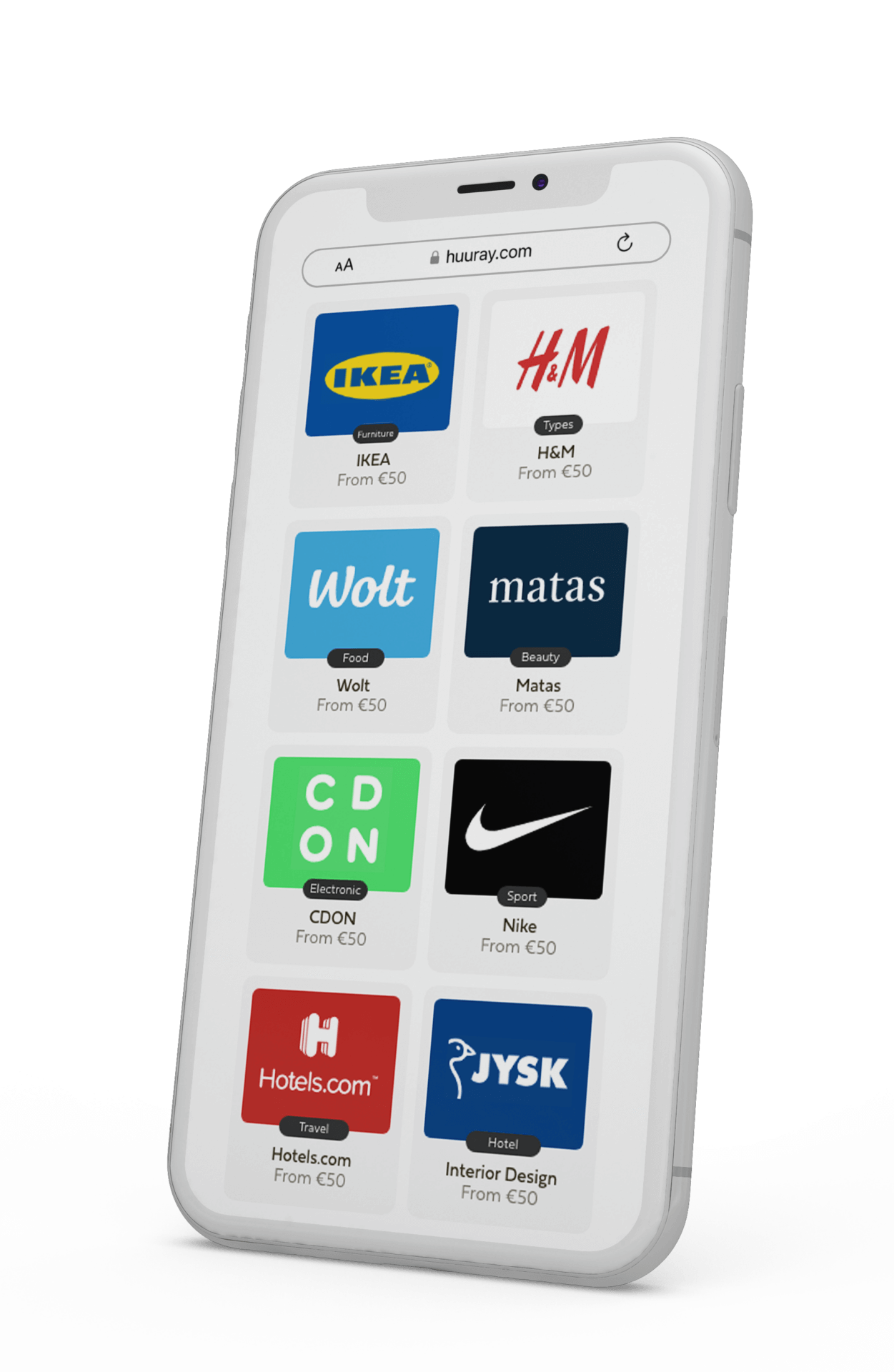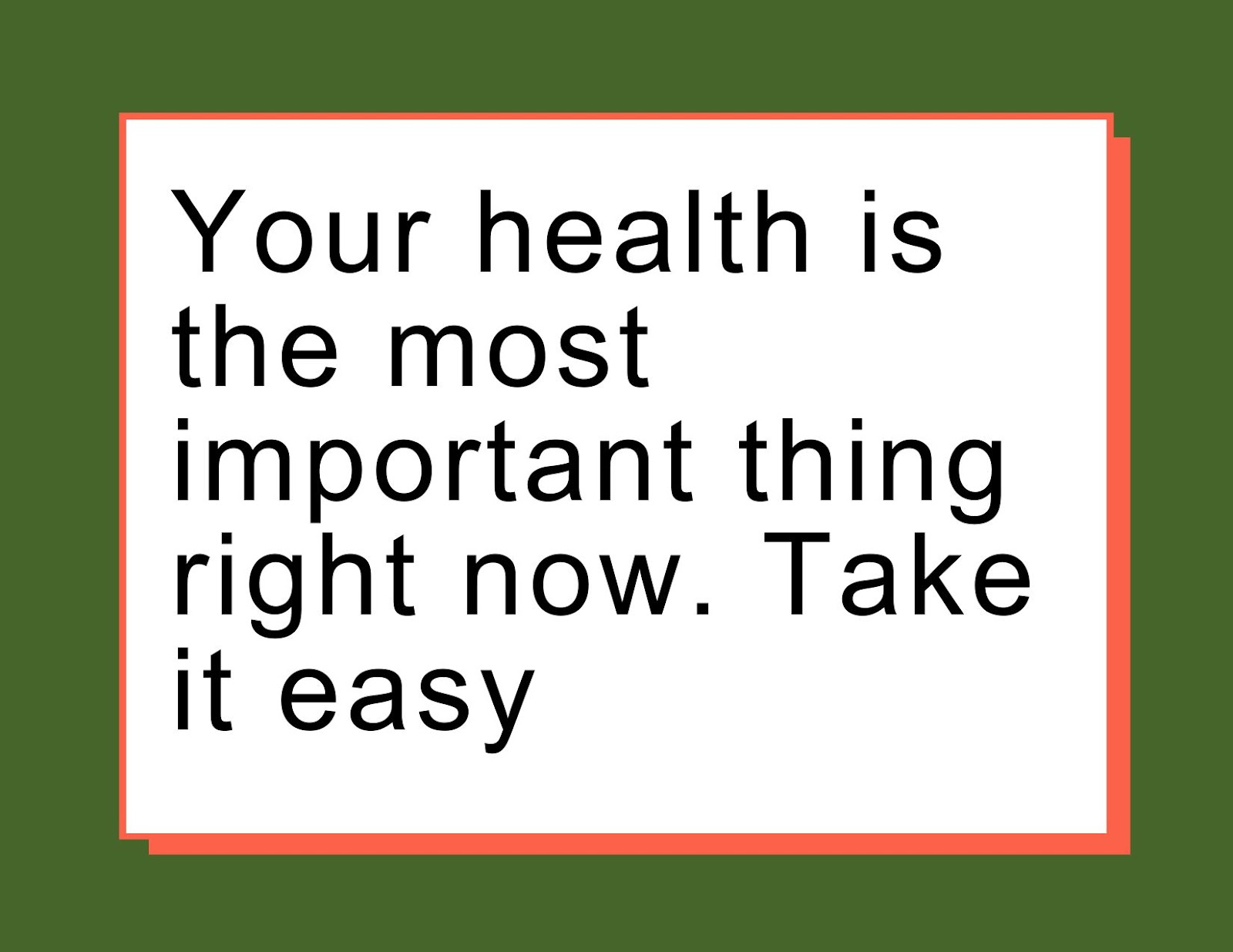Boost Employee Morale with 48 Heartfelt Get Well Wishes


by Signe Hegart
September 22, 2023
In today’s fast-paced and demanding work environment, it’s crucial to prioritize employee morale and well-being. Employee incentives is a great way to do it, but another effective way to boost employee morale is by sending heartfelt get well wishes to those who are unwell or going through a tough time. At Huuray, we believe that by showing your employees that you care, you not only promote a supportive work culture but also contribute to their overall well-being.
Jump to section
What are Get Well Wishes?
“Get well wishes” are messages or expressions of good intentions and support that people send to someone who is unwell, recovering from an illness, or going through a difficult health-related situation. These well wishes are meant to convey empathy, hope, and encouragement to the person facing health challenges. Get well wishes can be expressed through various means, such as cards, verbal messages, text messages, emails, or even in person. They often include sentiments like hoping for a quick recovery, sending positive thoughts, offering comfort, or expressing care and concern for the person’s well-being. Get well wishes are a way to show support and provide emotional comfort during a time of illness or recovery.
Why are Get Well Wishes important?
- Employee Well-Being: Demonstrating concern for an employee’s health and well-being reinforces a positive workplace culture that values individuals as more than just workers. It shows that their health matters to the organization.
- Morale Boost: When employees receive get well wishes from their colleagues or employer, it can boost their morale and spirits during a challenging time. This can positively impact their mental and emotional well-being, potentially speeding up the recovery process.
- Employee Engagement: Employees who feel cared for by their employer and coworkers are more likely to be engaged in their work. Knowing that their employer and colleagues are supportive during illness can foster a stronger sense of belonging and loyalty.
- Team Building: Sending get well wishes can strengthen team bonds and foster a sense of unity. It reminds employees that they are part of a caring and supportive community within the workplace.
- Reducing Stress: Illness can be stressful, and knowing that one’s employer and colleagues are supportive can alleviate some of that stress. This, in turn, can positively impact an employee’s ability to recover.
- Maintaining Productivity: When employees feel supported during their recovery, they are more likely to return to work feeling motivated and ready to contribute, which helps maintain productivity levels.
- Promoting a Positive Work Environment: Demonstrating empathy and support when employees are unwell helps create a more positive work environment. Employees are more likely to feel valued and appreciated, which can lead to improved job satisfaction.
Related: The Power Of Words: 101 Motivational Quotes for Employees
48 get well wishes
Rewarding and recognizing employees for their hard work and dedication is a common practice in many companies. It not only boosts morale and motivation but also fosters a positive work environment. However, rewards and incentives can go beyond individual achievements and extend to supporting employees during challenging times, such as when they are dealing with an illness or injury. Sending well wishes and positive messages to employees who are recovering can make a significant impact and help them feel supported by their team and the company as a whole.
In the world of workplace dynamics, fostering a sense of care and support for employees is paramount. When an employee falls ill or faces a health challenge, it presents an opportunity for organizations to demonstrate their commitment to the well-being of their team members. One powerful way to do this is by combining get well wishes with gift cards.

Send yourself a gift card to go along with the get well wishes
1. Sending you healing thoughts and warm wishes for a speedy recovery.

2. Get well soon! We miss your smile around here.
3. Hoping you feel better with each passing day.
4. Take all the time you need to rest and recover.
5. Wishing you a quick and complete recovery.
6. You’re in our thoughts and prayers as you heal.
7. Sending healing vibes your way.
8. Get well soon, so we can hang out again!

9. Rest up and feel better soon.
10. Your health is our top priority. Get well soon!
11. May your recovery be swift and your spirits high.
12. Take it one day at a time and you’ll be back on your feet in no time.
13. We’re here for you, cheering you on to a speedy recovery.
14. Wishing you strength and good health as you heal.
15. Sending you a big hug and well wishes.
16. Remember to take care of yourself during this time.

17. Get well soon! We can’t wait to see you back in action.
18. Your well-being means a lot to us. Get better soon!
19. Here’s to a fast and smooth recovery.
20. Healing thoughts and positive vibes are coming your way.
21. May each day bring you closer to feeling your best.
22. Get well soon, so we can make more memories together.
23. Rest, relax, and recover. We’re thinking of you.
24. Your health is the most important thing right now. Take it easy.

25. Wishing you a speedy recovery and good health ahead.
26. Get well soon, and we’ll celebrate your good health together.
27. We’re rooting for you! Get well soon!
28. Sending you strength and courage as you heal.
29. Stay strong, and you’ll overcome this hurdle.
30. Your resilience is truly inspiring. Get well soon!
31. Take this time to pamper yourself and heal.
32. We’re here to support you every step of the way.

33. Get well soon, and let’s create more happy memories.
34. You’re not alone in this journey to recovery.
35. Wishing you a complete and speedy healing process.
36. Your health is a top priority, so take it easy and get well soon.
37. Sending love, light, and healing energy your way.
38. Get well soon, and we’ll celebrate your victory over illness.
39. Thinking of you and wishing you a quick recovery.
40. May each day bring you closer to feeling like yourself again.

41. Your well-being is our concern. Get well soon!
42. Get plenty of rest and let your body heal.
43. You’ve got the strength to get through this. Get well soon!
44. Sending you a basket of good health and positive vibes.
45. We’re looking forward to the day you’re back on your feet.
46. Heal well, heal fast, and come back stronger.
47. Your recovery is in our thoughts and prayers.
48. Get well soon, and let’s celebrate your good health together.

Wanna try and make a personal and customized get well card? Creating your own get well cards using Canva can be a delightful and personal way to show your support and care for someone who is unwell. Canva is an online design platform that offers a wide range of customizable templates, graphics, and tools, making it easy to craft unique and heartfelt get well cards.
The Power of Get Well Wishes
When an employee is going through a difficult time, whether it be due to an illness or injury, it can greatly affect their overall well-being and ability to perform their job. As a company, it is important to show compassion and support for your employees during these challenging times. One way to do this is by sending get well wishes to those who are recovering.
Get well wishes may seem like a small gesture, but they can have a powerful impact on the recipient. Not only do they show that you care about their well-being, but they also provide encouragement and motivation during their recovery process. Knowing that their team and the company are thinking of them and wishing them a speedy recovery can help employees feel valued and supported.
Read also: Corporate Gift Card program: Enhancing Morale and Productivity
The Impact of Community Support
Sending get well wishes can help strengthen the bond between employees and the company. It shows that the company values their employees not only for their work contributions but also as individuals. By taking the time to acknowledge and support their employees’ well-being, companies can create a positive work environment where employees feel cared for and appreciated.
In addition to sending get well wishes, companies can also consider offering additional support to employees during their recovery process. This can include flexible work arrangements, such as remote work or reduced hours, to accommodate their needs. Companies can also provide resources and information on available support services, such as counseling or therapy, to help employees navigate their recovery journey.
Furthermore, supporting employees during challenging times can have a long-term positive impact on their overall health and well-being. By providing the necessary support and resources, companies can help employees recover more effectively and reduce the risk of long-term complications or relapses. This ultimately benefits both the employee and the company by ensuring a healthy and productive workforce.
Read also: Low Morale in the Workplace: How to Turn the Frown Upside Down
Cultural taboos or customs to be aware of when sending Get Well Wishes
When sending get well wishes in a workplace, it’s important to be sensitive to cultural taboos and customs, as workplace dynamics often involve people from diverse cultural backgrounds. Here are some general considerations:
Religious References
In a diverse workplace, individuals may follow various religious beliefs or none at all. It’s important to be mindful that not everyone shares the same faith.
Avoid religious greetings, prayers, or references to specific deities, as these can be seen as inappropriate or uncomfortable to those who do not practice the same religion.
Instead, use secular and inclusive language in your message. You can offer well wishes for a swift recovery without mentioning any religious affiliations.
Superstitions
Superstitions vary widely across cultures and can involve numbers, objects, or actions. For example, the number four is considered unlucky in some Asian cultures, as it sounds similar to the word for ‘death.’
Steer clear of references that could be interpreted as unlucky or inauspicious in the recipient’s culture. It’s safer to use neutral and universally positive language.
Symbolism
Colors, animals, and other symbols can have different cultural meanings. For instance, white is often associated with purity and mourning in Western cultures, but in some Asian cultures, it symbolizes death.
Be aware of the symbolic meanings of colors and symbols in your colleague’s culture. Research or ask if necessary to ensure that your well wishes do not inadvertently convey unintended messages.
When in doubt, opt for neutral and universally positive symbols and colors, such as green for growth and healing or a simple heart symbol to express care and support.
Let’s have a chat
Creating a supportive and inclusive work environment for employees who are recovering from illness
Creating a supportive and inclusive work environment for employees who are recovering from illness is not only compassionate but also promotes a positive workplace culture. Here are some steps you can take:
Open Communication
- Encourage open and honest communication with employees in recovery. Let them know they can approach you or the HR department to discuss their health status, treatment, or any necessary accommodations without fear of judgment or reprisal.
- Create a culture where employees feel safe discussing their needs and concerns related to their health. This transparency helps build trust and fosters a supportive environment.
Flexible Work Arrangements
- Offer flexible work arrangements that accommodate the needs of employees in recovery. This might include adjusting work hours to accommodate medical appointments, allowing telecommuting, or temporarily reducing workloads.
- Flexibility helps employees better balance their recovery and work responsibilities, reducing stress and enhancing their overall well-being.
Accommodations
- Make reasonable accommodations for employees with disabilities or health limitations. This may involve modifying workstations, providing ergonomic equipment, or ensuring the workplace is physically accessible.
- Collaborate with employees and, if necessary, consult with experts to determine appropriate accommodations that enable them to perform their job effectively.
Educate Colleagues
- Create awareness among other employees about their colleague’s illness. Educate them about the specific condition, any accommodations or adjustments that have been made, and how they can support their colleague.
- This awareness can help dispel misunderstandings and reduce stigma, fostering a more empathetic and understanding work environment.
Maintain Confidentiality
- Respect and uphold the privacy of employees recovering from illness. Adhere to strict confidentiality standards, and ensure that their health information is not disclosed without their explicit consent.
- Confidentiality not only maintains trust but also ensures compliance with legal requirements, such as those outlined in healthcare privacy regulations.
Read also: 90 Jaw-dropping Morale Boosters: Unique Ideas Ensured To Work
Offering support to a coworker without invading their privacy or making them uncomfortable
Offering support to a coworker without invading their privacy or making them uncomfortable requires a delicate balance of empathy and respect. Here are some tips on how to do this effectively:
Respect Their Space
- Recognize that everyone has different boundaries when it comes to sharing personal information, especially in a professional setting. Some individuals may prefer to keep their health status private.
- It’s important to respect their space and allow them to decide how much, if any, information they want to share about their illness. Avoid prying questions or unsolicited inquiries.
Choose the Right Medium
- When sending well wishes to a recovering coworker, opt for a private and appropriate medium of communication. A personalized card, a private email, or a direct message are often better choices than a public message in a group setting.
- This ensures that your message is received in a more personal and confidential manner, respecting your coworker’s privacy.
Use General Phrases
- Craft your message using general and empathetic phrases that express care and support without intruding into their personal affairs. For instance, you can say, “I heard you’re not feeling well. I just wanted to let you know I’m thinking of you and here if you need anything.”
- Avoid asking probing questions about their illness or treatment unless they choose to share that information willingly.
Offer Assistance
- Make your support tangible by offering assistance in a non-intrusive manner. Let your coworker know that you are available to help with tasks or provide support, but do so without imposing or making them feel obligated.
- For example, you can say, “If there’s anything I can do to help, whether it’s with work tasks or anything else, please don’t hesitate to let me know. I’m here to support you.”
Respect Their Response (or Lack Thereof)
- Understand that your coworker may choose not to respond to your message or may decline your offer of help. This is a personal choice, and it’s essential to respect their decision without making it awkward.
- It’s possible that they might be overwhelmed or simply prefer to focus on their recovery. Respect their boundaries and avoid pressuring them for a response.
Conclusion
Employees are the lifeblood of any organization, and their health and happiness directly impact productivity, engagement, and overall company success. One effective way to boost employee morale and show that you genuinely care about their well-being is by sending heartfelt get well wishes to those who are unwell or going through a tough time.
Get well wishes are more than just words; they are expressions of empathy, compassion, and support. They carry the weight of your concern for the individual’s health and recovery. In a world where deadlines and targets often take precedence, taking a moment to extend well wishes reminds employees that they are valued as individuals, not just as workers.
By offering get well wishes, you are not only promoting a supportive work culture but also contributing to your employees’ overall well-being



Let’s have a chat
FAQ
Including a gift card with a get well soon card can be a thoughtful and considerate gesture, depending on your relationship with the person, the nature of their illness, and your personal preferences. At Huuray we specialize in gift cards and are always ready to help you!
When writing a get well soon card for a coworker, it’s important to keep the message positive, encouraging, and heartfelt. Here are some ideas of what to write:
1. Express your concern
2. Offer well wishes
3. Provide words of encouragement
4. Offer assistance or support
5. End with a positive note
Sending get well soon messages to coworkers who are unwell or facing health challenges can have several benefits, both for the individual and the workplace as a whole. Here are some of the advantages of sending these thoughtful messages:
- Boosting Morale: Get well soon messages uplift the spirits of the unwell coworker. It shows them that their colleagues care about their well-being, boosting their morale during a difficult time.
- Enhancing Emotional Well-Being: Illness can be emotionally taxing. Knowing that coworkers are thinking of them and wishing them a speedy recovery can provide emotional comfort and reduce stress.
- Fostering a Supportive Work Environment: Sending these messages demonstrates a culture of support and compassion in the workplace. It strengthens the sense of community and teamwork, making employees feel valued beyond their professional contributions.